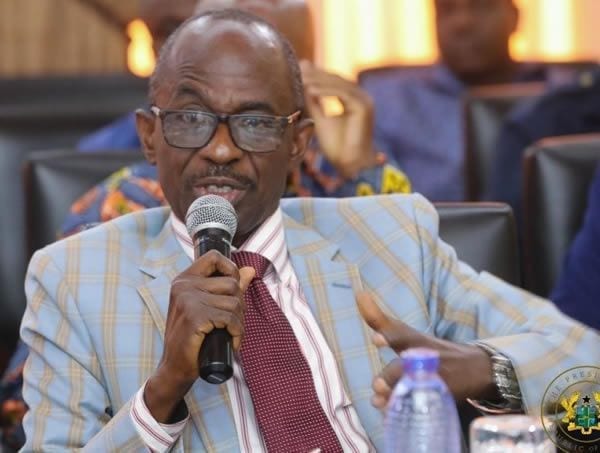General Secretary of the National Democratic Congress (NDC), Johnson Asiedu Nketia has said that the 2020 presidential and parliament elections were the worse elections ever in the history of the fourth republic.
Speaking at a press conference in Accra on Tuesday August 24, Mr Asiedu Nketia said “It is trite knowledge that all is not well with our elections in Ghana.
“It all begun as far back as in 1992, some have got solutions along the way from each passing elections since 1992.
“We thought we were making progress because each election represented an improvement on the previous elections until 2020 came and you will bear with me that 2020 elections has been one of the worse elections we have had in the 4th republic.
“We did our part as a country to resolve some of the problems. We made it known to the whole world that we are accepting to work with the outcomes of the court processes not because we think there has been justice.
“But we think we have to save the democracy and improve upon what we have.”
The NDC has proposed a number of electoral reforms for Ghana’s elections.
Mr Asiedu Nketia said the reform proposals, together with the supplementary reform proposals that may be submitted, are intended to be used to undertake a dispassionate and open discussion and review of the Electoral Commission’s operations.
“They are aimed at contributing to a national conversation on electoral reforms against the background of critical and lingering cross-party dissatisfaction with the electoral process (NB: all previous and current EC’s have been subject to intense attack from the Political Parties over the period).
“We hope that the Government will initiate the necessary steps to operationalize especially the 3 flagship reform recommendations in Part A of our Proposals as well as the recommendations of the Constitutional Reform Commission.
“We also hope that you, the media, will disseminate these reform proposals as widely as possible to enable as many of our country men and women to participate in the national conversation.”
Among the reform proposals are;
• The silence of the reform proposals on the issue of the increasing “monetization” of electoral politics in Ghana is deafening.
• The proposed Office of the Regulator of Political Parties (ORPP) should be re-designated “Multi-Party Democracy Commission (MPDC) with an expanded mandate to address the pathologies of the political system and to monitor the health of Ghana’s democracy, especially in periods in between elections.
• The proposed name of the ORPP should be changed to “Political Parties Regulatory Commission” (PPRC).
• There should be a cap on political party funding for electoral campaigns.
• The NDC’s engagement with stakeholders should be broadened into a “National Consultation on Electoral Reforms”.
• The membership of the EC should be technocratic rather than political with the membership positions being advertised, candidates interviewed and the most suitable persons appointed.
• There should be criteria to sieve out registered but inactive and moribund political parties and political parties that do not appear to be serious from the electoral process and from membership of the IPAC.
• The proposed Election Adjudication Committees (EACs) should be given a time frame within which to finish their work.
• The NDC should keep faith with Ghanaians and implement its reform proposals when it finds itself in government and the proposals have not been implemented at that time.
• The NDC may wish to secure the buy-in of other political parties before the proposals are tabled at a meeting of either the EC or the IPAC.
• The military must not be deployed in civilian elections under any circumstances whatsoever.
• The Legal and Technical Sub-Committees of the IPAC should be revived when the IPAC is restructured and becomes fully functional.
• If official legislative backing for the IPAC proves difficult, an MP or MPs should sponsor a Private Member’s Bill to that effect.
• There should be a mechanism to reduce the incidence of “spoilt ballots” during elections.
By Laud Nartey|3news.com|Ghana


